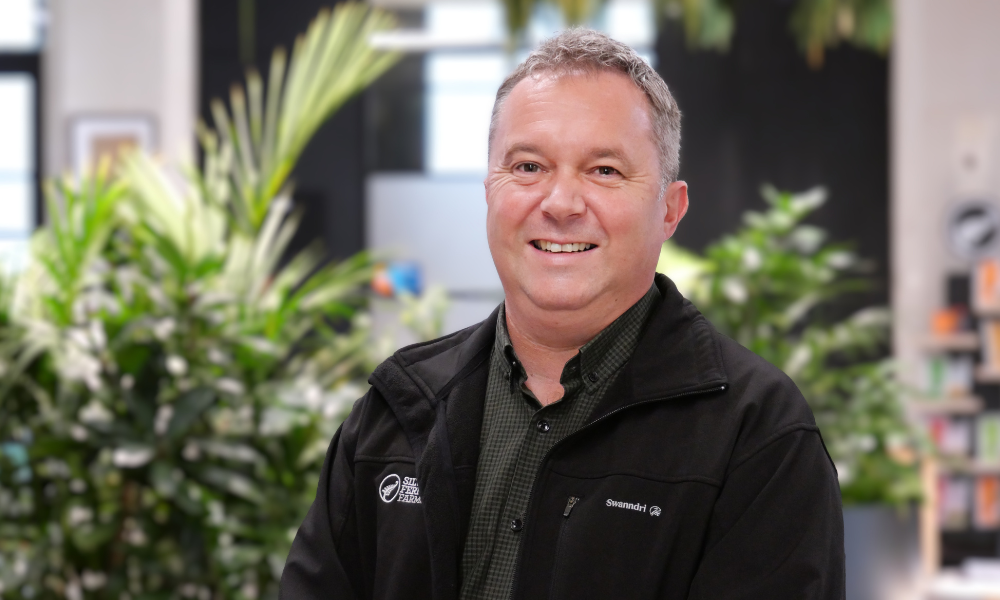
'Increasingly these days, most people we recruit would be interested in what we're doing in that space,' says CPO

Employers in Aotearoa are emphasising sustainability in a bid to attract more talent.
That’s according to a new survey from the Sustainable Business Network, which polled senior executives from nearly 30 organisations.
The expectations of candidates in the recruiting process have changed noticeably, according to Matt Carter, CPO of Silver Fern Farms, where sustainability has been a key part of the culture for some time.
“It’s interesting that maybe three or four years ago, we would have asked candidates about their commitment to sustainability and their experience and sustainable practices but that's turned now, and often candidates will be asking us about it first, either pre-interview, or as part of the interview,” says Carter.
“They are much more likely to drive the conversation, whereas we used to have to drive it. From that perspective, it has become an even more important aspect to attracting talent.”
This fits well with the organisation’s priorities, says Carter.
“Sustainability is at the core of Silver Fern Farms. One of our five strategic goals is deeply connected to sustainability ‘to become a trusted nature positive food producer’ so it's definitely woven into the fabric of who we are.
“I also think people are more savvy in asking about it. Rather than just talking about sustainability broadly, they might question specific to the role to check it’s authentic, and to understand what initiatives we have in the sustainability space that relate to their role or profession.”
Whereas a few years ago it tended to be the younger generation enquiring, Carter notes a shift there too.
“Now, particularly for professionals, sustainability is understood and they see what their profession can do to contribute to it. So, increasingly these days, most people we recruit would be interested in what we're doing in that space.”
He notes the industry has seen challenges in terms of its reputation environmentally.
“But we're leaning into it and we're doing so with our farmers, suppliers, and our staff - and actually some pretty cool progress is appearing. One of these is our new range of net carbon zero beef. Our success lies too in our partnership with our suppliers, who come from the land, value the land, and value the resources of nature.”
One of the keys to strengthening its sustainability message is the organisation’s willingness to be transparent, says Carter.
“We've self-reported our progress on sustainability and what our goals are. That is key for people because it doesn't necessarily matter what you're doing or what your priorities are, because that'll be different for every business, but the fact that you're leaning into it, the fact that you're transparent, and then it's really part of your strategy in a genuine, authentic way. That’s probably the most important thing.”
SFF employs 6,500 in manufacturing, processing, and marketing logistics across New Zealand and internationally. Its sustainability reporting and action plans are available on the website for all to see, says Carter.
Sustainability practices include a commitment in terms of internal resource, with on-farm sustainability teams working with farmer suppliers towards their own sustainability accreditation and to support programmes Silver Fern Farms runs. It also has initiatives to reduce emissions and improve social sustainability.
Communicating the strategies is vital, he says, and the imminent launch of an internal online development programme around sustainability goals is no exception, he says.
“The aim is to help educate and inform our staff through an online learning suite of modules about sustainability. It will enable staff to increase their knowledge and capability. That way, we’re helping build their knowledge and skills in that space.”
The emphasis on sustainability for Silver Fern Farms extends beyond environmental aspects, says Carter, who stresses the organisation takes its social sustainability responsibilities just as seriously.
“We tend to be the largest employer in many small towns in New Zealand, so we have a social responsibility to be a good employer, and to treat our people well, but also to be a really positive influence on that local community.
“It also comes down to our diversity and wellbeing objectives for our staff. That is important to a lot of new potential recruits. Key aspects are that everybody should be able to be their true selves at work and be able to seek support when needed.”
In Carter’s opinion, sustainability in the broadest sense – including environmental, social and taking into account aspects such as the longevity of the organisation – is the number one priority in attracting talent.
“A lot of candidates are really savvy and do their homework on organisations first so you may never know whether someone considered your role and maybe not apply, which would be an unknown loss.
“The type of people we are seeking are capable professionals who are at the top of their game, and most of those are aware of or committed to sustainability themselves, so I think they’re attracted to an employer that has it front and centre.”